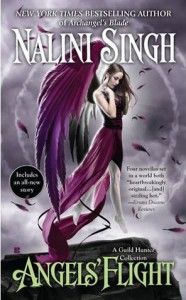
As I understand it, the entire story of
Animal Farm is one giant cynical metaphor for a failed communist utopia (because a communist utopia is a fail all of itself). It includes all the most representative tropes from mindless masses (animals) and propaganda (Squealer) to class enemies (upper class/management/capital owners), both outside (humans) and inside (Snowball and other ‘traitors’) ones, and everything in between.
In addition, its allusions to the strife between the West and the East, reminiscent of the Cold War that was yet to begin at the time of writing and publishing the book as well as the story’s cycle from capitalism to communism and back (as it happened in the 1990s) are also quite visionary.
As such,
Animal Farm is a very clever work of fiction.
However, coming from one of those ex-communist countries, I also feel more than a little offended by its cynical satire that mocks the silly, blind working-class people, comparing them to animals.
The insult is somewhat softened only by the fact that the story also shows that neither the capitalist masters nor the new ‘people’s’ leaders have actual working people’s best interest in mind but only their own and would therefore ally themselves with each other despite whatever contrary principles (that can always be twisted to suit them) they otherwise preach to the people ‘below’ them.
Next, the final outcome of the story implies that the working masses are incapable (too stupid and meek) of the self-managing they long for; since they are only capable of (blind) loyalty and obedience, they should clearly submit to the will of their betters (of which the better ones are the capitalists, of course).
In that point,
Animal Farm also serves as a warning/anti-communist propaganda, which makes sense, given the time of its conception: there is no hope in defeating capitalism, no recourse for lower and working classes to free themselves of governance and better their positions/lives; quite the contrary, they should be grateful for their lot in the capitalist world.
Personally, I think both capitalism and communism are failed systems and we need to find an alternate viable option that would allow people both individual expressions of their aspirations as well as offer protections to the underprivileged and limit their exploitation by the privileged (what social state is supposed to be if it wasn’t all too often hijacked/strong-armed by capitalism.)
But, I strongly resent the Western media’s portrayal of people from (ex)communist countries that reduces them to half-starved idiots decades and more behind times, which isn’t true and has, majorly, never been, not to mention that the so-called ‘Eastern Bloc’ has never been a uniform, one-dimensional entity and there have been vast differences between, for example, USSR and Yugoslavia.
Hence, I have mixed feelings about
Animal Farm; I could give it either 4-5 or 1 stars, so I’m giving it sort of median 3. Still, it is a highly thought-provoking story that is quick and easy to read (and also fun at times if it doesn’t make you mad) and as such I’d recommend it as well-worth to read.
 I certainly didn't see those two twists coming (I thought it would be something else), but they were well set up, in hindsight. I was a little annoyed of the back-and-forth and glitches in communication at about 3/4 in, but it made sense for the characterisation, and especially in the light of what turned out to have happened. And the ending was more that enough for this series to hold my attention for another instalment.
I certainly didn't see those two twists coming (I thought it would be something else), but they were well set up, in hindsight. I was a little annoyed of the back-and-forth and glitches in communication at about 3/4 in, but it made sense for the characterisation, and especially in the light of what turned out to have happened. And the ending was more that enough for this series to hold my attention for another instalment.



















